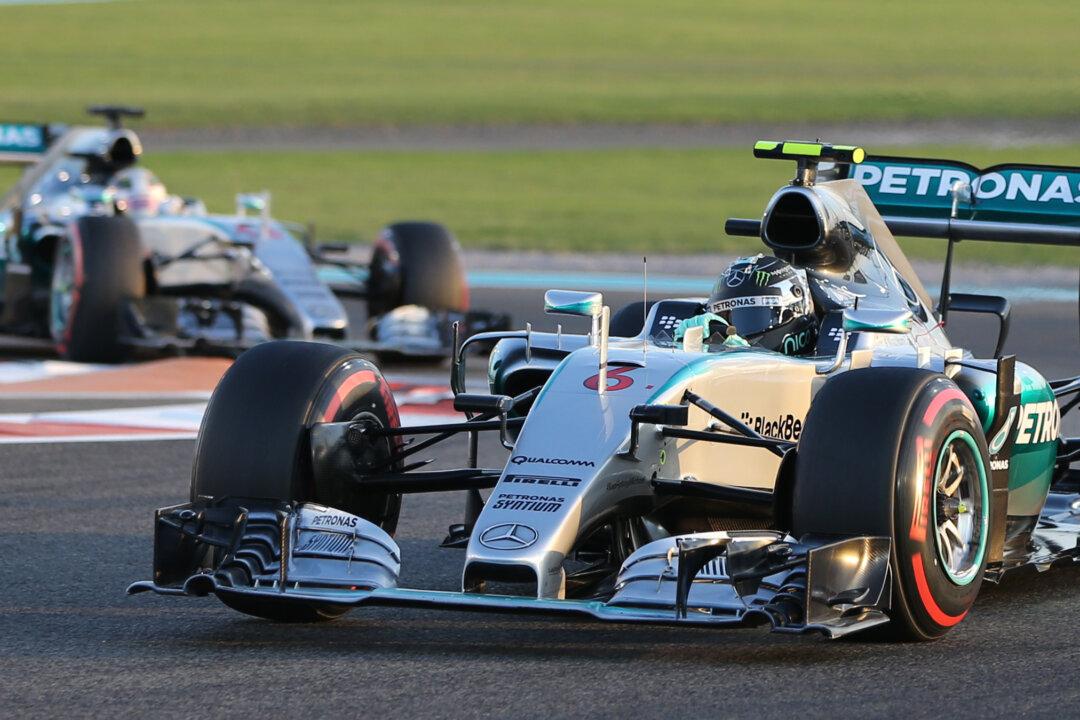ABU DHABI, United Arab Emirates—Wounded by another predictable and dull championship, and locked in a decision-making paralysis, the end of the Formula One season comes more as a relief than a climax.
The regular appearance of the jet-set on their yachts around Abu Dhabi’s Yas Marina circuit may provide the glamour upon which the sport trades, but beneath that surface there are major concerns, both sporting and financial.
Most worrying for all in Formula One is not just the scale of the problems, but the lack of any immediate means of addressing, let alone curing, them.
On the sporting front, 2015 has been predictable, with Mercedes even more dominant than the year before. Champion Lewis Hamilton and teammate Nico Rosberg finished 1-2 Sunday, a record 12th time in a season.
In sports, predictability is bad, and the television viewing figures which were already tumbling in 2014 will likely decline further, with the domino effect on advertising and sponsors.






